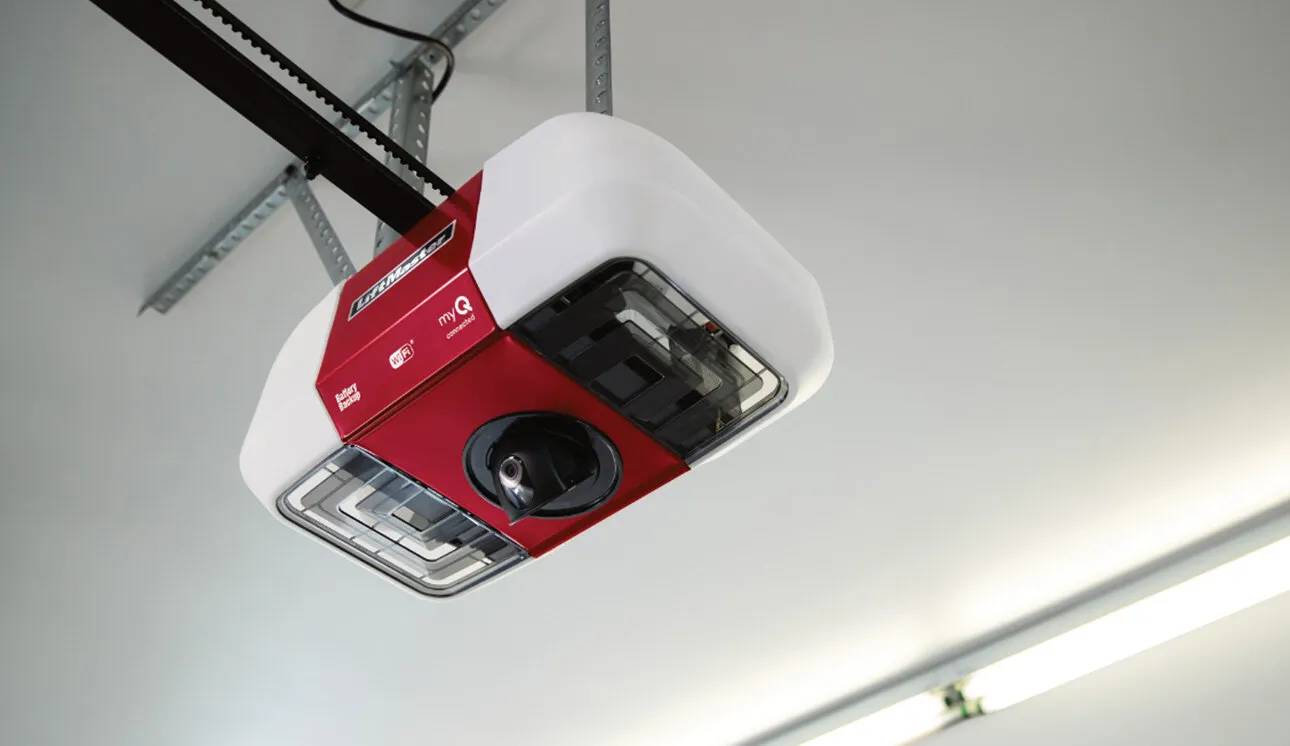
When it comes to choosing a garage door opener, homeowners are often faced with a variety of options, each with different features and specifications. One of the key factors that determine the performance of a garage door opener is its horsepower rating. Understanding the role of horsepower in garage door opener performance is essential for selecting the right opener for your specific needs. In this article, we’ll delve into the significance of horsepower and explore how it impacts the operation of your garage door.
What is Horsepower in Garage Door Openers?
Horsepower (HP) is a unit of measurement used to quantify the power output of an electric motor, including the motor used in garage door openers. In the context of garage door openers, horsepower refers to the strength and capacity of the motor to lift and lower the garage door.
Garage door opener motors typically come in three common horsepower ratings:
- 1/2 HP (Half Horsepower): This is the most common horsepower rating for residential garage door openers. It is suitable for most single and double garage doors, especially those made of lightweight materials like aluminum or single-layer steel.
- 3/4 HP (Three-Quarter Horsepower): A 3/4 HP garage door opener is a step up in power and is suitable for heavier garage doors, such as those made of solid wood or insulated steel. It provides more lifting force and can handle larger and heavier doors with ease.
- 1 HP (One Horsepower): The 1 HP garage door opener is the most powerful option available for residential use. It is designed for oversized and extremely heavy garage doors, often found in custom-built homes or commercial applications.
The Impact of Horsepower on Garage Door Opener Performance
The horsepower rating of a garage door opener has a direct impact on its performance in several key areas:
1. Lifting Capacity:
The primary role of a garage door opener is to lift and lower the garage door. The horsepower rating determines the opener’s ability to perform this task effectively. A higher horsepower rating provides greater lifting force, allowing the opener to handle heavier doors.
For instance, a 1/2 HP garage door opener may struggle with a solid wood or heavily insulated steel door due to its limited lifting capacity. In contrast, a 3/4 HP or 1 HP opener can effortlessly lift and lower these heavier doors, ensuring smooth and reliable operation.
2. Speed and Efficiency:
Horsepower also affects the speed and efficiency of the garage door opener. A higher horsepower motor generally operates more efficiently and can complete the opening and closing cycle faster than a lower horsepower motor. This can be particularly advantageous if you want quick access to your garage or if you have a busy household with multiple vehicle entries.
3. Durability and Longevity:
The amount of force exerted by the motor to lift the garage door can impact the durability and longevity of both the opener and the door itself. A garage door opener with insufficient horsepower may experience excessive wear and tear, leading to premature motor failure or damage to the door’s components.
On the other hand, a garage door opener with the appropriate horsepower rating ensures that the lifting force is distributed evenly, reducing the strain on the motor and prolonging its lifespan. Additionally, it helps prevent unnecessary wear on the garage door’s springs and tracks.
4. Noise Levels:
The horsepower rating can also influence the noise levels produced by the garage door opener during operation. Higher horsepower motors often run more quietly because they don’t have to work as hard to lift the door. This can be particularly important if your garage is attached to your home, as quieter operation minimizes disturbances inside the house.
Choosing the Right Horsepower for Your Garage Door
Selecting the right horsepower rating for your garage door opener is crucial to ensure optimal performance and longevity. Here are some factors to consider when determining the appropriate horsepower for your garage door:
1. Garage Door Material:
The material of your garage door is a key consideration. Lightweight materials like aluminum or single-layer steel doors typically work well with 1/2 HP openers. However, if you have a heavier door made of solid wood or insulated steel, you should consider a 3/4 HP or 1 HP opener for smoother operation.
2. Door Size and Weight:
The size and weight of your garage door are significant factors in determining the required horsepower. Larger and heavier doors will necessitate a garage door opener with greater lifting capacity. Measure your door’s dimensions and weight to ensure you choose the right opener.
3. Usage Frequency:
Consider how often your garage door is used. If you have a busy household with multiple vehicle entries and frequent use, a higher horsepower opener can provide quicker and more efficient operation. On the other hand, if your garage door sees minimal use, a lower horsepower opener may suffice.
4. Future Upgrades:
Think about any potential future upgrades or changes to your garage door. If you plan to replace your current door with a heavier one, it’s a good idea to invest in a higher horsepower opener now to avoid compatibility issues later.
5. Noise Tolerance:
Consider your tolerance for noise. If you value a quieter garage door opener, opting for a higher horsepower model can provide smoother and quieter operation, especially when lifting heavier doors.
6. Budget:
While it’s essential to choose an opener with the appropriate horsepower for your needs, it’s also important to consider your budget. Higher horsepower models tend to be more expensive than lower horsepower options, so balance your requirements with your budget constraints.
Conclusion
Horsepower plays a crucial role in determining the performance of your garage door opener. Selecting the right horsepower rating for your specific garage door is essential to ensure smooth and reliable operation. Understanding the material, size, weight, usage frequency, and noise tolerance of your garage door will help you make an informed decision when choosing the ideal garage door opener for your home. With the right horsepower, you can enjoy the convenience and longevity of a well-matched garage door opener that meets your needs.
Related posts:


Forex & Crypto
5 Best Ways to Earn Crypto While You Sleep in 2025
Categories
- Apps (1)
- Automotive (23)
- Beauty (7)
- Business (122)
- Celebrities (2)
- Digital Marketing (21)
- Ecommerce (2)
- Education (22)
- Entertainment (39)
- Events (6)
- Fashion (1)
- Features (4)
- Finance (1)
- Fitness (10)
- Food (2)
- Forex & Crypto (23)
- General (116)
- Health (48)
- House (61)
- Lifestyle (57)
- Marketing (8)
- Parenting (3)
- Pets (10)
- Real Estate (8)
- Safety and Security (14)
- Social Media (31)
- Sports (142)
- Technology (73)
- Travel (23)






















